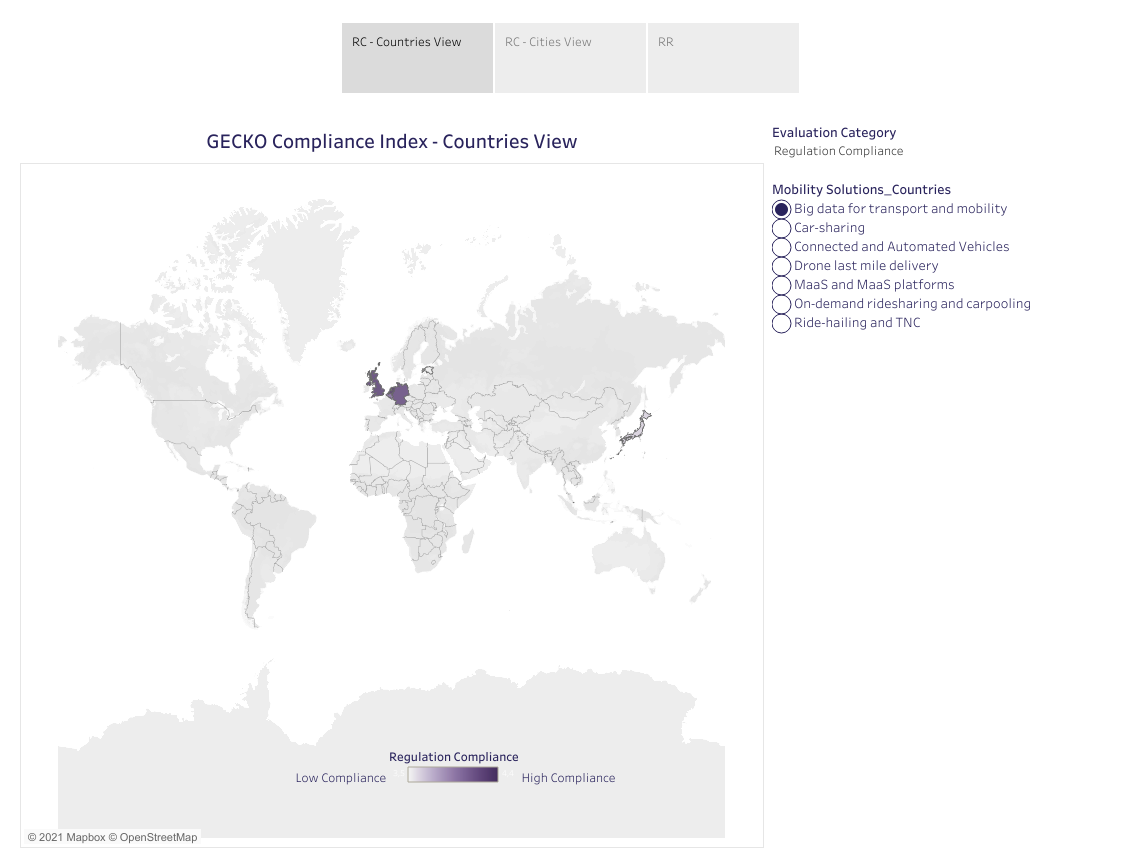Emergence of new mobility services (such as bike-sharing, e-scooters, car-sharing and ride-hailing) in the last years has disrupted traditional transport models. While on one side this has provided a range of mobility options to the consumers, on the other it has also resulted in several challenges for city planners and regulators.
CORTE (in collaboration with transport research institutes and international organizations) is directly contributing to the research on new mobility by studying its challenges and building tools to help policymakers and regulators. CORTE, together with experts from academia and industry, is currently implementing an EU-financed project called SOTERIA which aims to accelerate the attainment of the Vision Zero EU goal for vulnerable road users (VRUs), through a holistic framework of innovative models, tools and services that enable data driven urban safety intelligence and facilitate safe travelling of VRUs. The project engages Living Lab communities for the co-creation of urban safety solutions and infrastructure designs. Simulation models and explainable AI driven analytics are developed for supporting policy decisions and informing interconnected services that support VRUs in safe and clean travelling. The effectiveness of SOTERIA solutions has been demonstrated and validated within the Living Labs in Germany, Spain, Greece and the UK, addressing different types of VRUs, including ageing and young population groups, pedestrians, cyclists, motorcyclists and two-wheeler riders. CORTE is leading the work which will result in a set of policy recommendations to facilitate the deployment of safe solutions for VRUs in EU cities.
Previously, CORTE was implementing the GECKO project, which is an EU funded initiative to help local, national and supra-national authorities in developing most appropriate regulatory frameworks and governance models for transitioning to an era of cooperative, inclusive, competitive, smart, sustainable and interconnected mobility.
GECKO partners have developed the following tools to support authorities in developing the most appropriate regulatory frameworks and governance models for the transition to competitive, sustainable and interconnected mobility:
- A dynamically updated Knowledge Bank, which integrates relevant findings from its research on the subjects of technology, operation, business and social trends and innovations and regulatory and governance frameworks. The Knowledge Bank reviews the state-of-the-art on new mobility services and technologies, and acts as a collaborative platform that allows stakeholders to co-create value via information sharing.
- A Regulatory Frameworks Dashboard, which is a regulatory supportive tool demonstrating new regulatory approaches for disruptive mobility innovations. The objective of the Dashboard is to become a tool for policymakers that will help them measuring the level of compliance of business models and innovations with the regulatory schemes and governance models. The project collected more than 200 regulations with different governance models (directives, market-based rules, experimentations) to build up a database of regulations on a global level.
- A Regulatory Compliance Map, which is an interactive tool presenting regulatory schemes adopted for mobility innovations across Europe and beyond. The tool indicates regulatory compliance and readiness levels of different countries, highlighting how different countries and cities manage new and disruptive mobility solutions.
